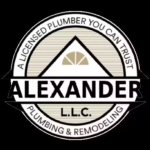When it comes to running a light industrial business, securing the right commercial property is crucial to your success. Whether you’re in manufacturing, distribution, or warehousing, having the right space can make or break your operations. But for many growing businesses, obtaining financing for industrial properties can seem like a daunting task.
That's where light industrial finance comes into play, providing the essential funding options needed to secure the ideal commercial space for your business. In this article, we’ll explore how you can unlock the funding you need, the benefits of light industrial Land Mortgage , and how it can help propel your business forward.
What is Light Industrial Finance?
Light industrial finance refers to financing options specifically designed to help businesses in light manufacturing, warehousing, or assembly industries acquire commercial property. This includes purchasing or leasing industrial real estate, such as warehouses, manufacturing plants, and distribution centers.
Unlike heavy industrial businesses, which often require specialized facilities and heavy machinery, light industrial businesses are typically involved in less complex operations that still demand well-suited facilities. Whether you’re looking to expand your footprint, upgrade your workspace, or purchase property for the first time, light industrial finance provides you with the tools to make it happen.
However, the path to securing financing for industrial properties is not always straightforward. Many businesses struggle to get approved for traditional loans because commercial properties come with higher risks for lenders. But with the right approach and understanding of available financing options, you can unlock the funding your business needs to thrive.
Why is Light Industrial Finance Important?
In the fast-paced world of light industrial businesses, having the right property is key to staying competitive. Whether you’re planning to expand your operations, purchase equipment, or simply need more space, securing the right commercial real estate is crucial to maintaining productivity and efficiency.
The right financing option can provide the flexibility and financial stability necessary for your business to scale. From purchasing new facilities to upgrading your current workspace, light industrial finance ensures that you have the capital to grow while protecting your financial well-being.
Here are a few reasons why light industrial finance is essential for growing businesses:
1. Access to Capital for Property Acquisition
Whether you need a new warehouse, an office space, or a manufacturing plant, securing funding through light industrial finance makes it possible to acquire the real estate necessary for your operations. Without this financial support, many businesses would struggle to access the capital needed to purchase or lease commercial property.
2. Enabling Expansion and Growth
As your business grows, you’ll likely need more space to store inventory, house machinery, or increase production. With light industrial finance, you can unlock the funding needed to expand your footprint, ensuring your business can meet the demands of a growing market. Having a property that suits your specific needs can help streamline your operations and increase efficiency.
3. Flexibility for Short and Long-Term Needs
Light industrial finance offers a variety of flexible financing options, allowing businesses to choose a solution that fits their specific needs. Whether you’re looking for short-term financing for temporary projects or long-term funding for purchasing a commercial property, you can tailor your financing options accordingly.
Financing Options for Light Industrial Businesses
Now that you understand the importance of light industrial finance, let’s dive into some of the most common financing options available to businesses looking to acquire commercial property.
1. Traditional Commercial Mortgages
Traditional commercial mortgages are one of the most straightforward and widely available financing options for purchasing light industrial properties. These loans allow businesses to secure funding by offering the commercial property as collateral. They typically come with fixed or variable interest rates and require a down payment.
Pros:
- Long repayment terms (up to 20-30 years)
- Lower interest rates compared to alternative financing options
- Can be used for both property purchase and property improvements
Cons:
- Requires a good credit score and financial history
- Can be time-consuming and involve a lengthy approval process
- May require a substantial down payment (often 20-30%)
Commercial mortgages are ideal for businesses that have a solid financial track record and are looking for a long-term solution for purchasing a commercial property.
2. SBA 504 Loans
The SBA 504 Loan is a government-backed financing option designed specifically for small businesses that need to purchase real estate or equipment. This loan program offers long repayment terms, low down payments, and competitive interest rates.
Pros:
- Low down payment requirements (typically 10%)
- Fixed interest rates and longer repayment terms
- Offers favorable terms for businesses that meet the SBA’s size standards
Cons:
- Strict eligibility criteria and application process
- Lengthy approval process
- Can be challenging for newer businesses to qualify
SBA 504 loans are a fantastic option for small businesses looking to secure affordable long-term financing for purchasing or renovating light industrial properties.
3. Commercial Real Estate Lines of Credit
If your business is looking for flexibility and quick access to funds, a commercial real estate line of credit can be a great solution. A line of credit allows businesses to borrow against the value of their commercial property and only pay interest on the funds they use.
Pros:
- Offers flexibility in borrowing and repayment
- Provides immediate access to funds when needed
- Only pay interest on the amount borrowed
Cons:
- Higher interest rates compared to traditional loans
- Requires a business to have equity in their commercial property
- If not managed carefully, it can lead to debt accumulation
Commercial real estate lines of credit are ideal for businesses that need short-term financing or ongoing access to funds for property management, renovations, or unforeseen expenses.
4. Lease Financing
Leasing commercial property is another financing option available to businesses that may not want to purchase real estate outright. Lease financing allows businesses to rent the space they need while maintaining the flexibility to expand or relocate as necessary. With a lease, you can often include property improvements, equipment, and other operational costs into the agreement.
Pros:
- Lower upfront costs and lower financial commitment
- Flexibility to scale up or down as needed
- Maintenance and repair costs may be covered by the landlord
Cons:
- No equity built over time
- Rent increases and long-term commitments can be costly
- Lease terms can be restrictive for growth
Leasing is a good option for light industrial businesses that require flexibility and don’t want to commit to owning property, especially if your space needs are temporary or subject to change.
How to Choose the Right Financing Option
Choosing the right light industrial financing option depends on several factors, including your business’s goals, financial situation, and property needs. Here are some considerations when making your decision:
1. Evaluate Your Property Needs
Are you looking to buy a new warehouse, upgrade your current facility, or lease temporary space? Understanding your space requirements will help you determine whether you need to purchase property or if leasing is a better option.
2. Assess Your Financial Health
Your business’s credit score, financial history, and cash flow play a big role in securing financing. If your business is new or has limited credit history, you may want to explore government-backed loans like SBA 504 loans. For businesses with strong financials, traditional commercial mortgages or lines of credit may be better suited.
3. Consider the Long-Term
Consider how long you plan to stay in the property and how it fits into your long-term business plan. If you’re looking for a long-term commitment, purchasing property with a commercial mortgage or SBA loan may make sense. If you need flexibility or expect to grow quickly, leasing or using a line of credit might be better.
4. Seek Professional Guidance
Navigating light industrial finance can be complicated, so working with a financial advisor or real estate expert can help you assess your options and make the best decision for your business.
Conclusion
In a competitive and fast-paced world, securing the right commercial property is key to the success of any light industrial business. Fortunately, light industrial finance offers a variety of flexible funding options to help businesses acquire the space they need to grow and succeed.
Whether you’re looking to purchase a new property with a traditional commercial mortgage, secure low-interest funding through an SBA 504 loan, or lease space to meet your evolving needs, there are financing solutions available to suit your business. By understanding your property needs, evaluating your financial health, and exploring the available options, you can unlock the funding necessary to secure the commercial property that will support your business’s growth and success.



